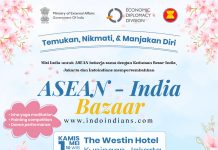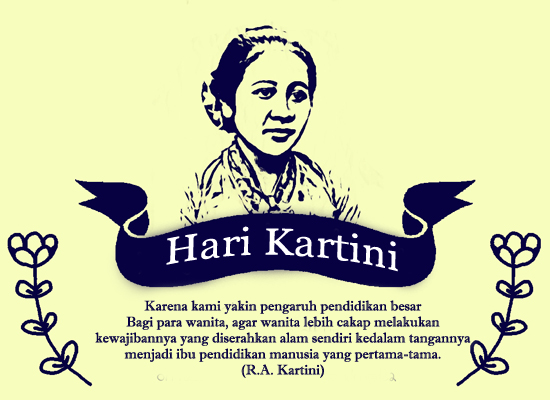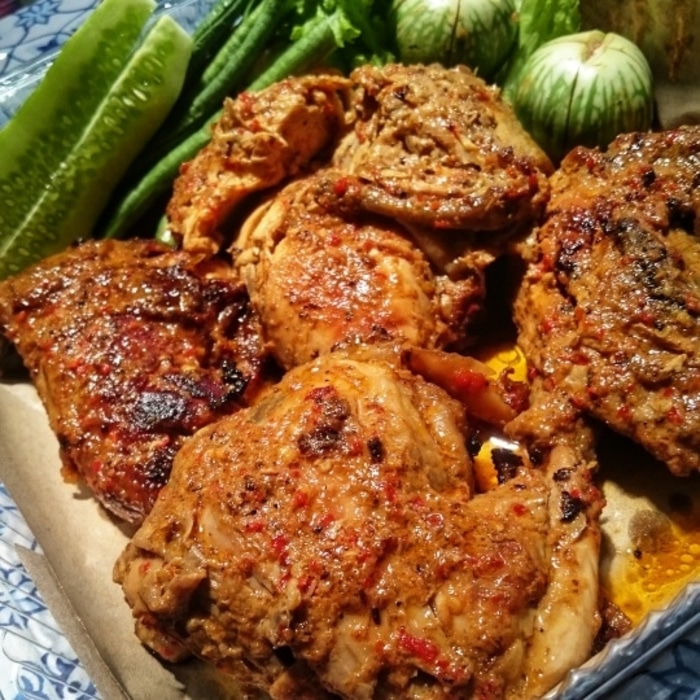One of the first things that becomes apparent to newcomers on arrival in Indonesia is the great disparity between the rich and the poor. Jakarta is a city of huge contrasts – a modern metropolis with luxurious shopping malls, exclusive hotels, beautiful houses and all the latest facilities. On the other hand, it has some of the most miserable slums imaginable.
Many Indonesians live in abject poverty without hope or opportunity to change their lives. The rate of unemployment + underemployment in Indonesia is very high – about 40% of the workforce – and about 40 million people survive on less than $1 a day. Generally Indonesians rely on members of their extended family to help tide them over in hard times as the government does not have an all-inclusive social security program. However not everyone has a family who can help them, and there are also the sick and disabled who have great need of assistance.
In view of this situation many expatriates feel moved to lend a helping hand during their time in Jakarta in order to make a difference to the lives of others. There are lots of ways that expatriates can help, either by providing financial support or by giving their time as volunteers, by organizing fund-raising events for charities, attending such events and purchasing products made by the disabled.
Expatriate women are active in the Indonesian community, supporting local charitable organizations through the Social Welfare committees of national clubs and societies such as ANZA, AWA and BWA. All of the national women’s groups have a two-fold purpose of providing information, fellowship and social activities for members and giving financial and practical assistance to needy people through local charitable organizations which help women and children specifically and the family unit as a whole. Assistance can be in the form of scholarships, books, materials and furniture for schools, assistance for the handicapped, micro-credit programs, harelip, cranio-facial and other surgeries, TB treatments, provision of clean water sources, vitamin supplements, feeding programs and well-baby clinics as well as support for orphanages, homes for the aged and other institutions. Coordination meetings of all of the groups are held at regular intervals in order to share information on worthwhile projects and information on worthwhile projects and items of concern.
Volunteers give their time to help others in many ways, by serving in administrative roles, or using their talents to raise money and attending meetings to ensure that the funds are given to worthy causes. If you prefer a hands-on commitment, you can visit the projects, volunteer your time teaching English, playing with babies at orphanages or teaching a new skill to others. You can also get involved directly in a project or foundation (yayasan) that benefits the local community, such as those mentioned below.
English Language Volunteers In Schools (ELVIS)
In coordination with The Wandering Books Foundation (Yayasan Kelana Pustaka) ELVIS volunteers go into schools and help ESL teachers and underprivileged students who rarely hear English spoken. No prior teaching experience is required. If you can speak fluent English, if you enjoy children, and if you love building relationships in the local community, you are welcome to join ELVIS. They will match you with a local Indonesian school, give you a “what to do, what to expect” orientation, and then you may begin your ELVIS activities. These activities include reading to and/or conversing with a class of students, and building a relationship with their teacher.
If you have a CD or cassette player you no longer need, please consider donating it to The Wandering Books Foundation. These will be distributed to teachers who have no audio resources, so they can begin to use English CDs and cassettes with their students.
For more information on ELVIS, or regarding CD/Cassette player donations, please contact Marsue Ferguson: marsueferguson@hotmail.com.
Yayasan Kelana Pustaka
The Wandering Books Foundation (Yayasan Kelana Pustaka) is a non-profit educational foundation of which the main activity is a mobile library that provides reading materials in Indonesian and English for children and teenagers. The ultimate aim of the foundation is to make it possible for children and young adults of all levels in society to have access to good literature and to increase their reading habits.
The reading collection comprises books and magazines in Indonesian and English, which were received through donations from institutions and individuals and books specially bought for the library.
Yayasan Kelana Pustaka’s volunteers are mostly young people, although there are also parents and grandparents who donate their time, knowledge and skills to help promote the reading habits of children by reading to the children and providing interesting activities that directly or indirectly whet their intellectual interest. They regularly visit schools and several places in the communities of Jakarta and the surrounding areas. The stopover could be a school, a community or the garage of a home, any sheltered place where children can gather. In addition to the stopovers, boxes of books are also lent out to responsible institutions or adults. These are made available to children and young adults in the neighborhood for a few months, after which the boxes can be exchanged with new ones.
The mobile library is staffed by volunteers and is financed and supported entirely through donations. The foundation needs help to operate professionally and to give better service to its customers. If you think this is a worthwhile project, you can contribute by donating your time, or funds for operational expenses.
Yayasan Pustaka Kelana (The Wandering Books Foundation) Jl. Kelapa Puan Timur III NB-4/18
Kelapa Gading Permai North Jakarta
Phone: 450 1848 or 453 0572 Email: mardjono@cbn.net.id
Kampung Kids
This foundation grew out of the efforts of one expatriate woman working to improve her neighborhood. She succeeded in expanding her programs by garnering wide reaching personal involvement and support within the generous expatriate community. She started by cooking soup and providing fruit for her son’s little Indonesian playmates once a week. As the number of children attending grew rapidly, it became obvious that many more children in the neighborhood lacked proper nutrition. Her Pejaten Barat soup kitchen led to the legal formation of Yayasan Kampung Kids in November 1999.
Kampung Kids has a 3 phase program:
Phase I – Basic Nutrition
Children 16 years of age and under, as well as pregnant and breastfeeding mothers are provided with one meal per day of soup with vegetables, meat and rice.
Children under 5 years, pregnant and breastfeeding mothers are also given one cup of milk daily.
Phase II – Education
Financial assistance is given to school age children who cannot attend public school due to the lack of family resources.
Tutoring classes are set up for older children (ages 7-12) who have never attended school and who are illiterate, in preparation for entering elementary school.
Playgroup for children ages 2-3 years old.
Weekly English Classes for adults and children.
A Community Center was created in the neighborhood where all children can freely play and go for guidance and help and where a computer class is held using donated computers.
Phase III – Health and Hygiene
Quarterly health checks are provided by a volunteer doctor and/or nurse; babies and the under fives receiving milk are weighed monthly to check progress.
Basic Hygiene Classes are held and the poorest are given personal hygiene products such as soap, shampoo, toothbrush and toothpaste once a month.
There is also a Sewing Training Program run by a few volunteers. Some of the items the students have made are for sale at the many local bazaars and the foundation is able to pay small salaries to the students’ families. This program is run not as a way for Kampung Kids to make money, but to provide salaries to individuals who before had no particular skill, and so that they may eventually use this skill to provide for their families.
Yayasan Kampung Kids Pejaten Barat IV No.22 South Jakarta Phone: 719 4787
Email: cc@kampungkids.org Website: www.kampungkids.org
Yayasan Balita Sehat (The Foundation for Mother and Child Health)
The Foundation for Mother and Child Health (FMCH), a not-for-profit independent organization, works to improve the lives of mothers and children in the local community by providing long term programs focused on health, nutrition, education, and sustainable skills training. The aim of the foundation is to help children reach their potential by alleviating poverty and malnutrition.
The problem of underweight children goes hand in hand with a lack of disposable income within a family, poor knowledge of basic nutrition and hygiene practices and poor access to medical help, clean water and decent accommodation. All these factors play a part in this cycle of deprivation.
The Foundation for Mother and Child Health was founded by a British nurse living in Jakarta in 1997 originally as a mother-and-child centre assisting impoverished families. The centre currently provides access to health, hygiene and nutrition education for mothers and community health workers, access to medical care for both mothers and children, Early Childhood learning, nutrition programs and growth monitoring for young children, and skills training for mothers.
The foundation has always counted on the generous support of the expatriate community. Many expatriates are familiar with Yayasan Balita Sehat as the beneficiary of the sales of the Family Guide to Jakarta and proceeds from advertising on the website www.familyguidetojakarta.web.id. Yayasan Balita Sehat welcomes donations of goods or money as well as time and/or skills.
Yayasan Balita Sehat Jl. H. Naim II No. 10
Cipete Utara,
South Jakarta Phone: 723 2119 Email: fmchjakarta@gmail.com, contact@fmch.co.uk Website: http://www.motherandchildhealth.org
Yayasan Goodwill International
Goodwill is a registered Indonesian charity (yayasan) which gives multi-yearscholarships to the brightest and mostneedy future leaders. Goodwill International’s mission is to provide financial assistance, training, care, resources and advice to young Indonesians and in doing so give them a chance to lead and serve their communities and their country. The scholarship program has given over 300 disadvantaged, bright and motivated students the means to graduate from two of Indonesia’s leading public universities, the Bogor Agricultural Institute and the University of Indonesia.
Goodwill International helps students to improve their life prospects, empower themselves to fulfill their true potential, get the best training and/or education possible, maintain good health and nutrition, establish personal and business values and ethics, find a good and rewarding job or vocation.
The standard annual donation needed to sponsor one student is US$650 or 6,000,000 Rupiah. Sponsors are asked to make payment to Goodwill during June and July, ready for Goodwill to start funding the student at the start of term time, orientation and training in August. This covers tuition fees for one year, a monthly allowance for books, materials, food, accommodation, use of computers, and transportation to classes.
The Yayasan also uses part of this payment for its cost of administering of the scheme and organizing the leadership training program.
Goodwill scholarship winners are chosen by virtue of their need and merit. Each student must be recommended by their University, must have strong academic records, must demonstrate leadership qualities and potential, must have served their local community or worked to support themselves, must need outside financial support if they are to complete their studies.
It is the leadership training that makes a Goodwill scholarship different from others, and which past students all agree they found particularly valuable after leaving University. Training modules include public speaking, CV writing, job searching, interviewing, team building, leadership styles, business English, and participating in a business game.
Volunteers can become involved with the selection of students or the training program and, of course, many sponsors are needed to support the students.
Yayasan Goodwill International
Jl. Pisang No. 27 Pasar Minggu South Jakarta
Phone: 780 7141 Website: http://yayasan.info/yayasan.html
Yayasan Usaha Mulia
For over thirty years the Foundation for Noble Work (Yayasan Usaha Mulia – “YUM”) has been helping thousands of Indonesians, from the tiniest babies to elderly people struggling to survive the trauma of disease, malnutrition, abandonment, economic difficulties, lack of education/training, and natural disasters.
These people are cared for through various relief initiatives and eight projects, located on the islands of Java, Sumatra (Aceh), and Kalimantan. Four of these projects are operated by IRDN (Indonesia Relief & Development Network) which has recently become a division of YUM. Aid is provided regardless of age, gender, religion, ethnicity, or race.
There are a variety of ways you can make a dramatic improvement in the lives of some of the poorest people of Indonesia:
Sponsoring a child –
Learning Center students
Children’s Village residents
Government school program Making a donation – Unlike large foundations which choose only to accept “general” donations, with the Foundation for Noble Work you can specify what you would like your donation to be used for. Volunteering – contact the foundation to find out how you can help.
Olvia Reksodipoetro
Foundation for Noble Work
YAYASAN USAHA MULIA (“YUM”)
Email: olvia@yum-irdn.org
Website: http://www.yum-irdn.org
Wisma Cheshire
Yayasan Wisma Cheshire is part of the worldwide organization of Cheshire Homes for the Disabled. The Jakarta home was opened in November 1974 by the late Group Captain Leonard Cheshire, VC. Built on land donated by Fatmawati Hospital, funds from London along with local donations were used for the buildings. The home is managed by a committee of Indonesian and expatriate volunteers. Ibu Poniati, the matron, looks after the everyday running of Wisma Cheshire with the help of her staff.
The home cares for some 30 resident paraplegics of both sexes, all confined to a wheelchair, whose families cannot afford to keep them or who do not have the facilities to look after them. Ninety percent of them have disabilities caused by road or industrial accidents: the rest have suffered from polio or birth defects. It is the aim of Wisma Cheshire to enable all residents to learn a skill within or outside the home – with the ultimate hope that they will find employment and gain financial independence.
Most of the residents are encouraged to learn skills that can help to support The Red Feather shop, which is situated at the home. Handicraft and woodwork items, of a high quality, are sold in the shop.
The residents are managed and supervised in their work by a group of volunteer expatriates. As well as selling these items in the shop, the volunteers also attend various bazaars, coffee mornings and expatriate women’s society monthly meetings in Jakarta.
The handicraft items include tablemats, napkins and coasters, embroidered towels, silk jewelry rolls, casserole carriers, baby items, oven gloves and potholders, embroidered towels, bottle bags, padded hangers, gift and shoe bags and much, much more. The woodwork section produces beautiful dolls’ houses and furniture, cradles, cots, garages, forts and castles, children’s easels, desks, tables and chairs.
As yet, Wisma Cheshire is not selfsupporting, relying on sales from the shop and elsewhere but mainly on generous donations from local expatriate societies and foreign companies based in Indonesia. The residents are paid for their work, but also contribute a small percentage of their earnings towards the upkeep of the home.
If you require more information about how you can support the work of Wisma Cheshire or would like to volunteer to help with the various activities, please contact either Ibu Poniati at the Home or Jane Llewellyn, the Vice-President, at the addresses below.
The Red Feather Shop Yayasan Wisma
Cheshire:
Jl Wijaya Kusuma No 15A Cilandak
South Jakarta Phone: 769 2059 Email: jgl@centrin.net.id
Most expatriate volunteers see their involvement with social welfare projects as a chance to give something back to the Indonesian people. They derive great personal satisfaction in knowing that their efforts make a difference and provide hope for the future.
You can support these efforts by volunteering your time and talents directly to local foundations or through the social welfare committee of clubs you belong to, organizing fund-raising events, supporting fund-raising events organized by others and donating funds or used items which can be used by charities.
Provided by: Colliers International






